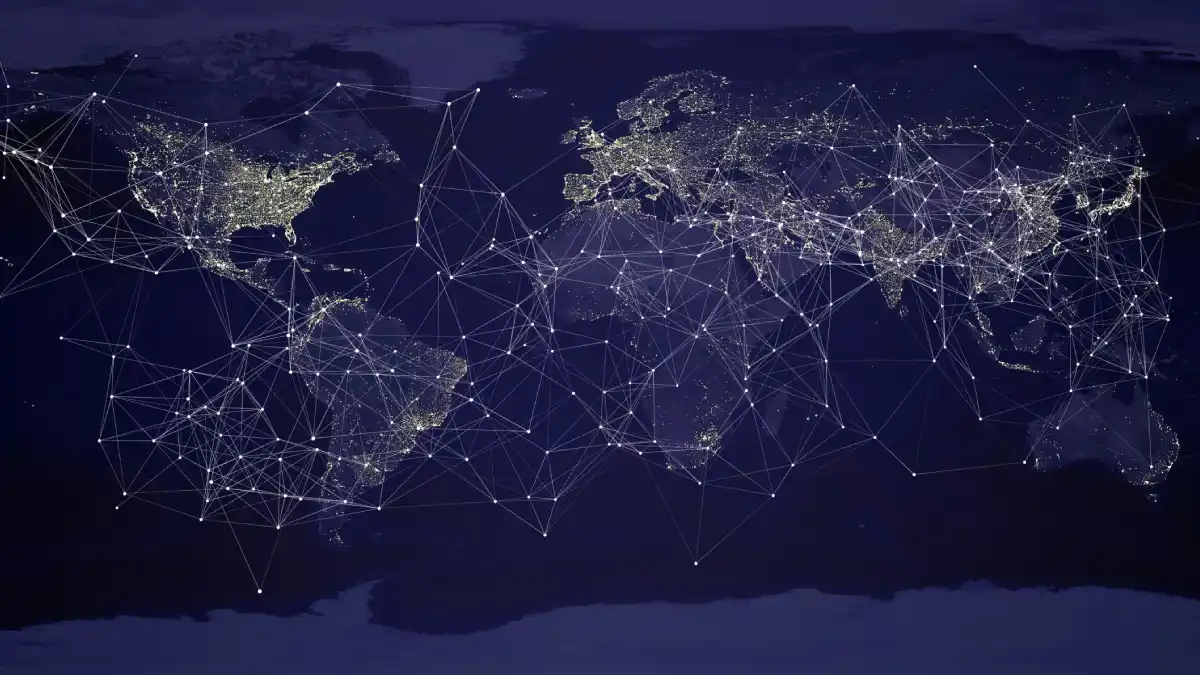Perfection is not only boring, it’s destructive
In 1999, just one year shy of the Millennium, I lived in Paris. Like many of my age, I awaited the release of The Matrix with the fervour of a pilgrim awaiting a messiah. Everyone expected the New Millennium to unveil either celestial flying cars or digital Armageddon, and in Paris the mood oscillated between café-intellectual musing and rave-culture euphoria. The Wachowski brothers spun their web of mystery to a fever pitch. There I was, watching it unfold, and as I asked myself where it all might lead, two moments seared themselves into my memory like hot iron on leather.
One of them was the famous scene when Agent Smith interrogated Morpheus. Let me just lay part of Smith’s monologue on you:
Have you ever stood and stared at it, marveled at its beauty, its genius? Billions of people just living out their lives, oblivious. Did you know that the first Matrix was designed to be a perfect human world? Where none suffered. Where everyone would be happy. It was a disaster. No one would accept the program. Entire crops were lost. Some believed that we lacked the programming language to describe your perfect world. But I believe that as a species, human beings define their reality through misery and suffering. The perfect world was a dream that your primitive cerebrum kept trying to wake up from. Which is why the Matrix was redesigned to this — the peak of your civilization.
This post first appeared in 2024, back when I still entertained hope that rational arguments might sway public sentiment. I’ve since remastered it—sharpened the edges, clarified the threat, and realigned it with the Grimwright ethos: use what works, discard the rest, and always—always—question the narrative. The date remains unchanged as a historical marker. The content does not.
Let those words settle in your mind like sediment in a glass of old wine, because while this was just a movie, the monologue contains a disquieting truth that reverberates through our real world. And no — you don’t need to believe you’re a pickled bio-battery floating in some techno-womb to grasp the point. It was fiction, yes, but also an inadvertent diagnosis of a civilization convinced it had banished suffering, only to discover itself hooked on it like a junkie discovering a stronger strain.
Roughly a decade before those lines were spoken, before the film itself came to be, an earth-shattering convulsion tore through the globe. The Soviet Bloc began to quake and crumble. Country after country peeled away until only the Soviet Union remained, and even the Red Empire finally dissolved into its constituent shards. It felt surreal: borders that had stood like iron curtains against the wind of history were suddenly flung open, and Easterners poured westward in their creaking Trabis and valiant Skodas to marvel at Western shop windows. You had to live through it to understand the stunned disbelief that accompanied the twilight of the Red Monster.
Francis Fukuyama grandly proclaimed it the end of history. Never mind that he wrote his book before the curtain even fell — prophets are always punctual in retrospect.
The world celebrated the collapse of what Ronald Reagan had christened the Evil Empire and indulged in a rapturous fit of universal optimism. From now on, we told ourselves, war and pestilence would be consigned to the dustbin. Mankind would lock arms, sing kumbaya, and let milk and honey flood the valleys of the earth.
Yes, we were truly naïve. From the vantage point of today, that’s glaringly obvious. It wasn’t then. Or only to a handful of sceptics — and even we were unsure whether our unease was warranted.
But as the world transformed, one colossal element remained unchanged.
The Cold War had erected an American-designed global superstructure of breathtaking scale. The bargain was simple: the United States constructed the most formidable Navy ever to carve through the seas, backed by the mightiest military machine to bestride the globe, and in return offered safe maritime arteries and open trade to all. The price of admission? Merely some form of allegiance to the American-led alliance that hemmed in the Red Menace to the East.
In short, Washington subsidized global commerce (for its allies, of course) through its naval and expeditionary leviathan, ensuring everyone played by the rules while the seas remained as safe as they had ever been in recorded history.
It was unprecedented. No power had ever wielded the reach that America commanded in those years. Not even the British Empire in its pomp could summon overwhelming force to any corner of the planet with such casual immediacy.
Such might was not conjured from thin air. American taxpayers bore the brunt, and alliance partners contributed their share. A fair deal — or at least, it seemed so.
The entire edifice was bound together by the shared terror of the Big Bear and the solemn conviction that if the West faltered, Soviet tanks would soon be trundling into Lisbon. With hindsight we know this was exaggerated, but at the time it was gospel. History is always clearer once the blood has dried.
Then, between 1989 and 1992, the world turned inside out. The Eastern Bloc disintegrated with astonishing speed. The raison d’être of the global structure evaporated overnight. Did we dismantle the scaffolding once the cathedral had been finished?
Hell no. We had grown fond of it. Globalism became the new catechism. The freshly civilized nations were expected to abandon conflict in favour of trade. It was always more fable than fact, but the illusion was convenient enough — for a while.
The hammer-and-sickle colossus was gone, and military budgets could, in theory, be trimmed. But beyond the money lay a sprawling administrative apparatus now without purpose.
And all this money came from the citizens of the free world. Did their governments return it or slash taxes with magnanimous zeal? Of course not. Once a state finds a revenue stream, it clings to it with the desperation of a drowning man clutching driftwood.
And when money exists without a mission, politicians inevitably descend into recklessness, liberated from consequences and giddy with power.
That’s when the fraying began. Slowly at first, almost imperceptibly, and then cumulatively. Each US president since Bush Sr. adopted a shade more protectionism than his predecessor — an entirely rational impulse. Why should America police the world forever?
The rest of the world squirmed at Washington’s change of heart, but really, could you blame the Americans? The global order was ruinously expensive, and soon they were the only ones footing the bill. The others became complacent freeloaders, wrapped in a moral righteousness that only hypocrisy can provide. Recall the faces of European leaders when President Trump bluntly informed them that the free ride was over. NATO’s 2% defence spending commitment was treated less as a pledge and more as an inside joke — with Germany leading the chorus of noncompliance.
But the rot went deeper. Nations never meant to partake in the global order during the Cold War eventually became its biggest beneficiaries. Chief among them: China. Its meteoric ascent was only possible because it could import and export with impunity, under the protective umbrella of the US Navy patrolling the Straits of Malacca, Hormuz and Bab-el-Mandeb. American taxpayers financed China’s rise — and every other mercantile opportunist following that template.
Can we blame Americans for growing tired of the arrangement? On one side they foot the bill; on the other, they’re undercut by Beijing’s dumping and other economic dark arts. A Faustian bargain indeed.
The Soviet threat also acted as the great democratizer. Nations with no democratic pedigree — Japan, South Korea, and others — became reliable democracies. Historic foes like France and Germany reconciled. That’s what a shared external menace does.
Remove the menace, and both people and nations revert to their native instincts — egoistic, short-sighted, tribal.
We like to believe cooperation is humanity’s natural state, and that some sinister cabal must be to blame when it falters. But our urges are far more primitive and embarrassingly predictable.
Once the reason behind a privilege is forgotten, that privilege is reimagined as an inalienable right. The supposed human right to travel and trade freely across safe seas is a historical aberration. My grandparents inhabited a world divided into spheres of influence, where commerce and travel were luxuries earned and paid for, not entitlements.
The post-1989 human became an instant freeloader. The one nation underwriting the whole system lost interest, but inertia kept it afloat for a few more decades — until the cracks became impossible to ignore.
People define themselves by the obstacles they surmount; nations and civilizations are no different. Remove the crucible of adversity and they soften like wax in the sun. Procrastination metastasizes, comforts dull the blade, and as nature despises a vacuum, that void fills with sentimental drivel. Wishful thinking completes the corrosion. Need examples? Look no further than Rome after Carthage, Athens after Persia, or Europe after Napoleon — each a cautionary tale etched in fading marble.
A modern example unfolds before our eyes in Gaza. Israel, once a nation of iron forged in existential struggle, gradually transmuted into a softer polity where virtue-signalling and fashionable pieties trumped hard reality. The old machine lumbered forward, propelled by inertia, but dulled. That’s why October 7th was even possible.
Now, Israel is rediscovering its steel. The hope of accommodation with its enemies has flown out the window. The same reckoning echoes across Russia’s periphery, and through European capitals that once treated Russian gas dependency as immutable. Europe is still lost in dreamy reverie, but reality has started its rude awakening. Economic collapse will do the rest. No illusions. Only interest. Naked and unapologetic.
Let’s be blunt: globalism has been tottering for far longer than a decade. An international nomenklatura laboured to keep it alive, praising its virtues while discreetly burying the bill. Corporations loved it, of course — shifting production to low-wage, lightly regulated havens while lecturing the West about progress.
Then COVID tore the curtain. Supply chains snapped like brittle twigs, and suddenly advanced economies couldn’t secure detergent or basic medical supplies without Beijing’s permission. Add a few marauding groups in strategic chokepoints, and trade itself became a dicey adventure.
Couple this with America’s slow retreat from the stage, and the world is transforming more profoundly than it did when the Soviet Union fell.
Globalization is gasping its last. What happens next?
What happens when Europe fractures anew, the US embraces isolationism, Russia implodes, China collapses under its contradictions, India never fulfils its grandiose promise, and the Middle East loses its oily green lifeblood?
That, ladies and gentlemen, is the world we are entering.




